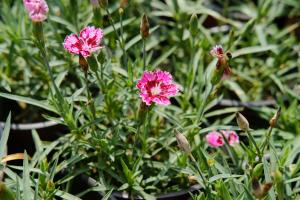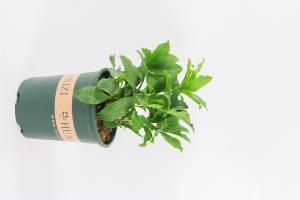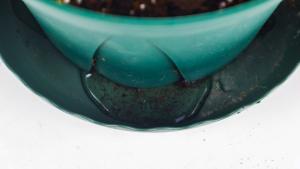Can I Water My Plants with Pool Water?
As a pool owner, one of your main concerns is keeping your pool water fresh and clean for you and your family to enjoy all summer long. Many pool owners may wonder if they can use their pool water to water their plants and gardens. In short, the answer is yes – but there are some important factors to consider first.
The Risks of Using Pool Water on Plants
Although it may seem like a convenient way to water your plants, using pool water comes with some risks. One of the main concerns is the high levels of chlorine and other chemicals found in pool water. These chemicals are designed to kill bacteria and keep the water clean, but when exposed to plants, they can also harm or even kill them.
In addition to chemical exposure, the high salt content in some pool water can also damage plants. Salt can build up in the soil over time, causing dehydration and burn to the leaves and roots of plants.
When It’s Safe to Use Pool Water on Plants
If you’re determined to use pool water on your plants, there are some precautions you can take to minimize the risks. The first step is to test the pool water to ensure the chlorine levels are safe for plants. You can purchase a simple water testing kit from a pool supply store or online to measure the chlorine, pH, and alkalinity levels in your pool water.
If the chlorine levels are too high, you can either wait for it to dissipate naturally, or you can dilute the pool water with fresh water. Typically, it’s best to wait at least two weeks after adding chlorine to the pool before using it to water plants.
If you have a saltwater pool, you may need to be even more cautious. Salt levels of more than 3,000 ppm can be harmful to plants, so it’s important to test the water for salt content before using it in your garden. If the salt levels are too high, it’s best to dilute the pool water with fresh water.
Alternative Uses for Pool Water
If you’re hesitant about using pool water on your plants, there are still plenty of ways to put it to good use. One option is to use it for non-edible plants, such as flowers, trees, and shrubs. These plants are less sensitive to chemical exposure and can handle small amounts of chlorine and salt.
Another alternative is to use pool water for outdoor cleaning projects. You can use it to rinse off patio furniture, outdoor toys, and even your car. If you have a significant amount of pool water leftover at the end of the season, you may also be able to donate it to a local farm or garden for irrigation purposes.
The Bottom Line
While it may be tempting to use pool water to water your plants, it’s important to be cautious and test the water beforehand. If the chlorine or salt levels are too high, it’s best to wait or dilute the water before using it. Alternatively, you can find other uses for pool water, such as cleaning or donating it for irrigation. By taking these precautions, you can enjoy the benefits of your pool without harming your precious plants.

 how many times do yo...
how many times do yo... how many planted tre...
how many planted tre... how many pine trees ...
how many pine trees ... how many pecan trees...
how many pecan trees... how many plants comp...
how many plants comp... how many plants can ...
how many plants can ... how many plants and ...
how many plants and ... how many pepper plan...
how many pepper plan...
































